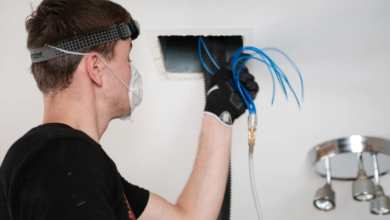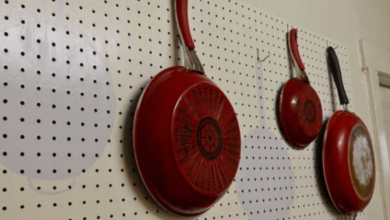Insulate For Comfort: How Insulation Affects Indoor Air Quality And Comfort

When you think about your home, insulation probably isn’t the first thing that comes to mind. However, it plays a critical role in maintaining the indoor air quality and overall comfort of your home.
Insulation is often hidden in the walls, attic, or floors, but it’s working behind the scenes to keep your environment safe, comfortable, and healthy.
This article will explore how insulation affects indoor air quality and comfort, helping you understand why it’s such an essential part of any home.
What Is Insulation?
Before discussing how insulation impacts your home, let’s briefly define insulation. Insulation refers to materials used to reduce the transfer of heat, cold, and sound.
Common types of insulation include fiberglass, foam, cellulose, and spray foam. These materials are installed in areas like the attic, walls, floors, and basements to help regulate temperatures inside your home.
See also: Ultimate Guide to Types of Heat Sinks: Technology, and How It Works
1. Regulating Temperature
One of the most critical ways insulation affects comfort is by regulating the temperature inside your home. During the summer, it helps keep cool air in and hot air out, while in the winter, it prevents warmth from escaping.
Without proper insulation, your home would lose heat in the winter and gain heat in the summer, making it harder for your heating and cooling systems to maintain a comfortable temperature.
Insulation maintains a stable indoor temperature and prevents hot or cold spots from forming in different areas of your home, creating a more comfortable living environment.
As a result, you don’t have to rely as much on your air conditioning or heating system, which can also help lower energy bills.
2. Improving Indoor Air Quality
While insulation regulates temperature, it also significantly improves indoor air quality. When done by professional IAQ Services LA, insulation helps create a sealed, controlled environment by preventing outdoor pollutants and allergens from entering your home.
For example, outdoor air can enter through cracks or gaps in your walls or attic without sufficient insulation, bringing in pollutants like pollen, vehicle exhaust, and dust particles.
Insulation can help improve the air you breathe by preventing these pollutants from entering your home. This is particularly beneficial for individuals with allergies, asthma, or other respiratory conditions.
Properly installed and sealed insulation helps to keep indoor air cleaner, providing a healthier environment for your family.
3. Reducing Moisture And Mold Growth
Excess moisture in your home can lead to serious problems, including the growth of mold and mildew.
Insulation plays a crucial role in controlling moisture levels by helping to keep the temperature inside your home stable and reducing condensation.
Condensation is a common problem in areas like the attic, where heat from the sun can cause warm air to meet cold surfaces.
Proper insulation prevents this by keeping warm air inside your home and helping to regulate humidity levels.
This reduces the chances of mold growth, which can negatively impact your health and your home’s structure. Mold thrives in damp environments, so good insulation can prevent these issues before they start.
4. Noise Reduction
Another important way that insulation affects comfort is through its ability to reduce noise. If you live in a noisy area or have a home with thin walls, insulation can help to block out unwanted sounds.
Insulation materials like fiberglass and foam absorb sound, making your home quieter and more peaceful.
Whether it’s traffic noise from outside or loud neighbors next door, insulation can help reduce the sound that travels through walls, ceilings, and floors.
This added quiet can significantly improve your comfort at home, allowing you to relax without distractions.
5. Energy Efficiency And Cost Savings
Proper insulation doesn’t just make your home more comfortable; it also improves energy efficiency.
By reducing the need for your heating and cooling systems to work as hard, insulation helps lower your energy bills. Less energy use means fewer emissions, which is better for the environment.
In the long run, investing in good insulation can save you money. Better temperature control, improved air quality, and reduced energy consumption will reduce your comfort and utility bills.
Conclusion
Insulation is vital in maintaining indoor air quality and comfort in your home. It regulates temperature, improves air quality, reduces moisture and mold growth, absorbs noise, and increases energy efficiency.
These factors contribute to creating a healthier, more comfortable living environment. If you’re considering improving your home’s insulation, it’s a good idea to consult a professional who can evaluate your home’s needs and recommend the best solution.
By investing in quality insulation, you’ll enjoy a more comfortable home with better air quality and lower energy costs—making it a win-win for your health, wallet, and overall well-being.
At Affordable Heating And Air, we specialize in providing expert insulation services to enhance your home’s comfort and air quality. Our team is committed to helping you create a healthier, more energy-efficient living space. Whether you need insulation installation, replacement, or maintenance, we are here to guide you every step of the way.






